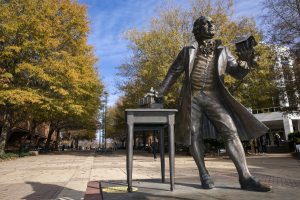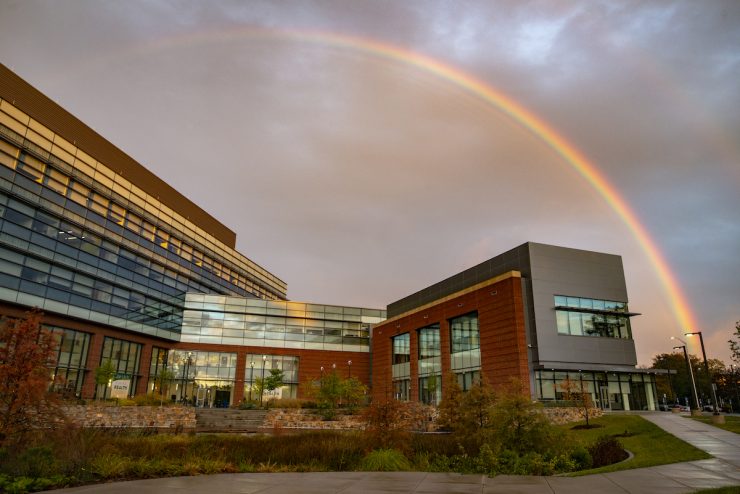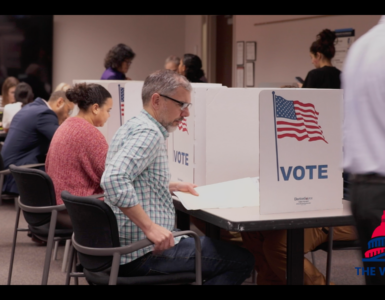Last month, George Mason University launched an official college of public health, an interdisciplinary move that officials say took more than a decade to make.
The college is the first of its kind in Virginia, where there has yet to be another standalone public health college. Bob Weiler, associate dean of academic affairs at George Mason, said conversations about creating the college began at the end of 2004.
“It has required a lot of time and a lot of effort by a lot of people here at Mason, particularly within the college as well,” Weiler said. “And so, just to see the actual transition to solidify and actually happen is really exciting.”
The college is made up of 1,900 undergraduate and 1,300 graduate students. It offers six undergraduate degrees, eight master’s degrees, five doctoral degrees and six professional certificate programs. The school is made up of the following:
- Nursing
- Global and Community Health
- Health Administration and Policy
- Nutrition and Food Studies
- Social Work
Weiler said before George Mason created a designated college, Virginia was one of 13 states without a college of public health. He added it was also one of the largest states to be without such a college.
“To lead the nation in healthy outcomes, we as a state must establish schools dedicated to education, research and community service in public health,” he said. “As a school of public health, we see it as a responsibility to the region and to the state itself.”
Colin Greene, the state’s health commissioner, said it was excellent for George Mason officials to bring the college to the state. He said having an understanding of the different facets of health helped him in his career as a doctor. It was also what inspired him to get a master’s degree in public health, he said.

“I think the fact George Mason is opening this college is great for the Commonwealth,” Greene said.
George Mason’s public heath school may be the first college of its kind in the commonwealth, but there are other public health college initiatives spread across communities in Virginia, Greene’s office noted. Eastern Virginia Medical School teamed up with Old Dominion University and Norfolk State University last March in an effort to establish a school of public health. Virginia Commonwealth University has also been working to make a public health college since last year, officials said.
Rebecca Sutter, a nursing professor, said George Mason’s college approaches public health with an interdisciplinary lens.
“The interdisciplinary nature of the college, and I would say the interprofessional nature, really lends itself to [improving health outcomes],” said Sutter, who had already been a professor at George Mason for 10 years. “Staying siloed in health and public health is not going to lead to a change that we know we need to have.”

Sutter said the COVID-19 pandemic was proof of the need for people across sectors to work together and for the college to come to George Mason.
“It really is timely as we’re coming out of a public health emergency and our COVID-19 responses,” she said. “As people know now, we just didn’t have the infrastructure and we just didn’t quite get it right.”
Taylor Thomas, a George Mason senior and global and community health major, said an interdisciplinary look at health would only make health infrastructure stronger. To Thomas, public health is not just vaccines or illness. She said it was also food access and other social determinants of health.
“I don’t think those are the parts of public health that people think of very often,” she said. “Having this change to the college of public health, I think, is reflective of what people really should know about public health in the broader community.”
Thomas is set to graduate at the end of this month. But she said she knows that although her time in the college is already ending, the college’s impact on the community was only beginning.















Add comment